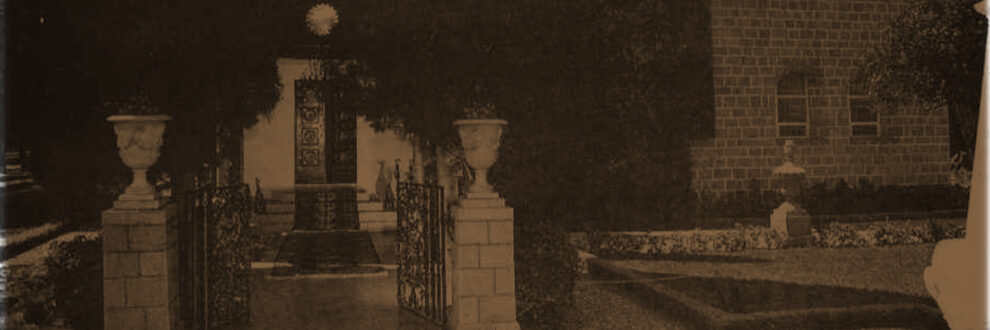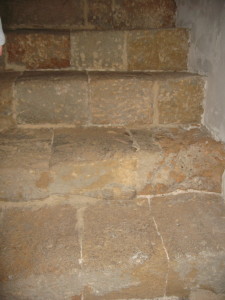Darvísh Ṣidq-‘Alí
Born: Unknown
Death: Unknown
Place of Birth: Unknown
Location of Death: ‘Akká, Israel
Burial Location: Baha’i Cemetery in Akka
Áqá Ṣidq-‘Alí was yet one more of those who left their native land, journeyed to Bahá’u’lláh and were put in the Prison. He was a dervish; a man who lived free and detached from friend and stranger alike. He belonged to the mystic element and was a man of letters. He spent some time wearing the dress of poverty, drinking the wine of the Rule and traveling the Path, but unlike the other Ṣúfís he did not devote his life to dusty hashish; on the contrary, he cleansed himself of their vain imaginings and only searched for God, spoke of God, and followed the path of God.
He had a fine poetic gift and wrote odes to sing the praises of Him Whom the world has wronged and rejected. Among them is a poem written while he was a prisoner in the barracks at ‘Akká, the chief couplet of which reads:
A hundred hearts Thy curling locks ensnare,
And it rains hearts when Thou dost toss Thy hair.
That free and independent soul discovered, in Baghdad, a trace of the untraceable Beloved. He witnessed the dawning of the Daystar above the horizon of Iraq, and received the bounty of that sunrise. He came under the spell of Bahá’u’lláh, and was enraptured by that tender Companion. Although he was a quiet man, one who held his peace, his very limbs were like so many tongues crying out their message. When the retinue of Bahá’u’lláh was about to leave Baghdad he implored permission to go along as a groom. All day, he walked beside the convoy, and when night came he would attend to the horses. He worked with all his heart. Only after midnight would he seek his bed and lie down to rest; the bed, however, was his mantle, and the pillow a sun-dried brick.
As he journeyed, filled with yearning love, he would sing poems. He greatly pleased the friends. In him the name bespoke the man: he was pure candor and truth; he was love itself; he was chaste of heart, and enamored of Bahá’u’lláh. In his high station, that of groom, he reigned like a king; indeed he gloried over the sovereigns of the earth. He was assiduous in attendance upon Bahá’u’lláh; in all things, upright and true.
The convoy of the lovers went on; it reached Constantinople; it passed to Adrianople, and finally to the ‘Akká prison. Ṣidq-‘Alí was present throughout, faithfully serving its Commander.
While in the barracks, Bahá’u’lláh set apart a special night and He dedicated it to Darvísh Ṣidq- ‘Alí. He wrote that every year on that night the dervishes should bedeck a meeting place, which should be in a flower garden, and gather there to make mention of God. He went on to say that “dervish” does not denote those persons who wander about, spending their nights and days in fighting and folly; rather, He said, the term designates those who are completely severed from all but God, who cleave to His laws, are firm in His Faith, loyal to His Covenant, and constant in worship. It is not a name for those who, as the Persians say, tramp about like vagrants, are confused, unsettled in mind, a burden to others, and of all mankind the most coarse and rude.
This eminent dervish spent his whole life span under the sheltering favor of God. He was completely detached from worldly things. He was attentive in service, and waited upon the believers with all his heart. He was a servant to all of them, and faithful at the Holy Threshold.
Then came that hour when, not far from his Lord, he stripped off the cloak of life, and to physical eyes passed into the shadows, but to the mind’s eye betook himself to what is plain as day; and he was seated there on a throne of lasting glory. He escaped from the prison of this world, and pitched his tent in a wide and spacious land. May God ever keep him close and bless him in that mystic realm with perpetual reunion and the beatific vision; may he be wrapped in tiers of light. Upon him be the glory of God, the All-Glorious. His grave is in ‘Akká.
Source:
‘Abdu’l-Bahá. Memorials of the Faithful. Bahai.org.
Image:
(c) Baha’i Chronicles





